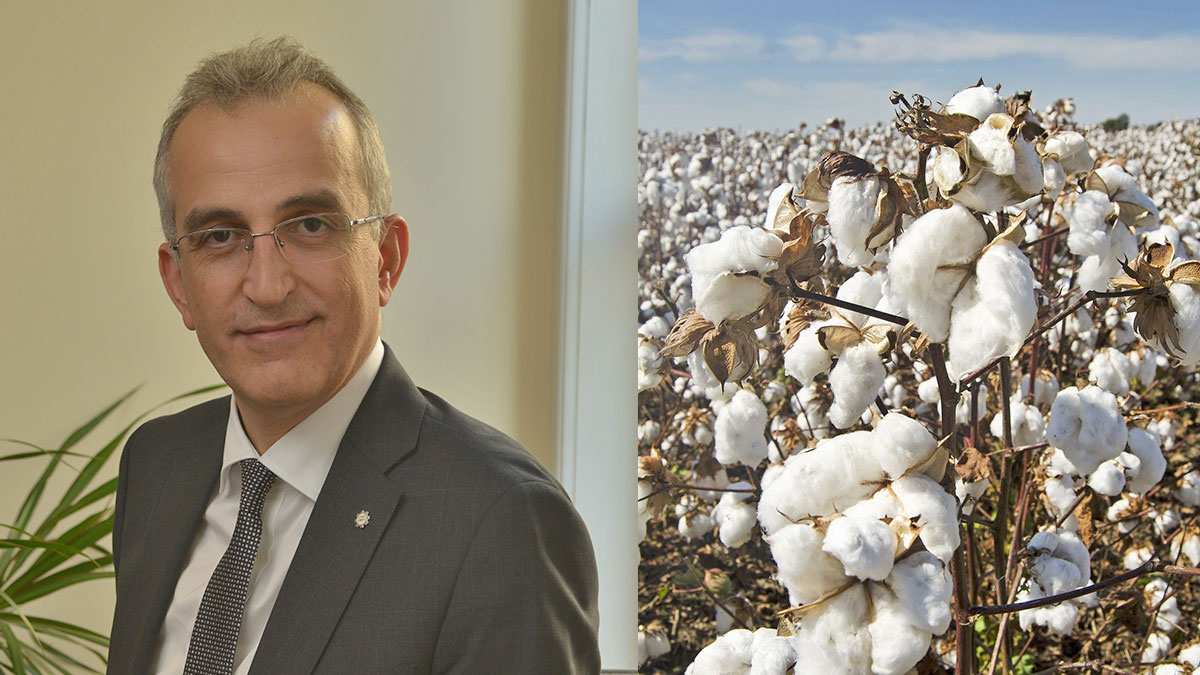Turkey needs new and comprehensive production policies for cotton; the traditional raw material of textile and apparel industries, exporting about 28 billion dollars and employing more than 1 million. Being a foreign-dependent country because it consumes more than it produces in cotton, Turkey also produces close to 80% of global GMO-free cotton. However, this year, 35% shrinkage is expected in cultivation areas. In order to contribute to sustainable growth and development in Turkey, fundamental issues were addressed in the cotton workshop organized by Istanbul Chamber of Industry (ISO). The “From Farm to Brand Cotton Workshop Report” published by ISO reveals striking facts. The report highlights the need for a new and comprehensive production policy for cotton. 10 urgent and highly effective policies are recommended in order to prevent a decline in Turkey’s cotton production.
İrfan Özhamaratlı, ISO Vice Chairman of the Board, underlined the importance of the report for the cotton industry. Pointing out that the report reveals Turkey’s cotton facts under various headings, Özhamaratlı defined cotton as the most strategic agricultural product for our country. Özhamaratlı said; “The immediate implementation of our recommendations in the report will prepare the ground for reducing production costs, increasing productivity, quality and added value, decreasing the need for imports, and help the sector to contribute more to the country’s economy, exports and employment”.
From Farm to Brand Cotton Workshop Report: Cotton should be a strategic agricultural product
It is emphasized in the report that Turkey is not able to use its power sufficiently while it could be the most effective producer in the world in cotton, which is described as ‘white gold’ for agriculture and industry. It has been stated that due to factors such as land division, migration and support policies, the cotton planting area has decreased by 30 percent in the last 20 years to 5 million decares and is expected to decrease by 35 percent in 2020. 10 Policy Recommendations were in the report in order for Turkey, which is producing close to 80 percent of the world’s GMO-free cotton, to prevent the decline in cotton and become a world brand.
Among the recommendations are the following; A control system should be established to protect cotton against alternative products and price fluctuations; cotton should be accepted as a strategic product and all authority and responsibility in the process should be collected in the Ministry of Agriculture; the whole process should be controlled by a system developed in cooperation with state-NGO-producer; cotton cultivation areas should be enlarged by combining and stable cotton cultivation should be done with modern agricultural techniques; farmers should be educated and informed about production and harvesting; To increase efficiency, machine harvesting should be supported with VAT reduction; licensed warehousing should be expanded; ginning factories should be modernized and standards should be set; With the Organic Cotton and Good Cotton Standard, sustainable production and farmers should be supported with additional premium; VAT support system should be applied for energy, water and machinery used in production, and the VAT of the services used should be reduced to 1%.
A 35% drop in cotton planting area expected in 2020
Data on current production of cotton in the world and Turkey is located at the beginning of the report. Around 250 million people in the world make their living from cotton. Due to the Covid-19 outbreak, the kg unit price of cotton fell below 1.5 dollars. Although cotton is produced in our country around Aegean, Çukurova and Şanlıurfa, cotton cultivation areas have declined in the last 30 years due to various reasons. The cotton cultivated area, which reached 7.6 million decares in 1998, went below 5 million decares in 2019. Still cotton area is expected to fall around 35 percent in 2020 in Turkey. However, per-hectare yield rose about 60 percent in the last 30 years in the case of Turkey, which is a leading manufacturer in terms of efficiency.
Turkey ranks sixth with 976 million tonnes and is performing 3.5% of world cotton. Turkey makes imports of 762 million tons of cotton a year, and ranks second with these numbers after China. The world’s largest cotton exporter is the USA with 3.2 million tons. Turkey’s cotton exports is around the level of 105 thousand tons. 80% of GMO-free cotton production of the world is cultivated in Turkey. The number of Organic and Good Cotton producers has reached 3,299. The size of the land with good cotton cultivation was 53,400 hectares.
 From Farm to Brand Cotton Workshop Report by ISO
From Farm to Brand Cotton Workshop Report by ISO
16 mistakes made in cotton production
The report drew attention to the incorrect application encountered at all stages of cotton production in Turkey. Errors and problems are listed in 16 items. Among them; decreasing cultivation areas, low quality, small scale, lack of cooperatives; farmer’s training and information needs, irrigation, fertilization, spraying and harvest errors were included. In the “Policy Recommendations” section at the end of the report, 10 items with high urgency and impact power in overcoming the problems were included. The report emphasizes that the state’s policy of supporting cotton is to be reviewed.
Πηγή: textilegence.com